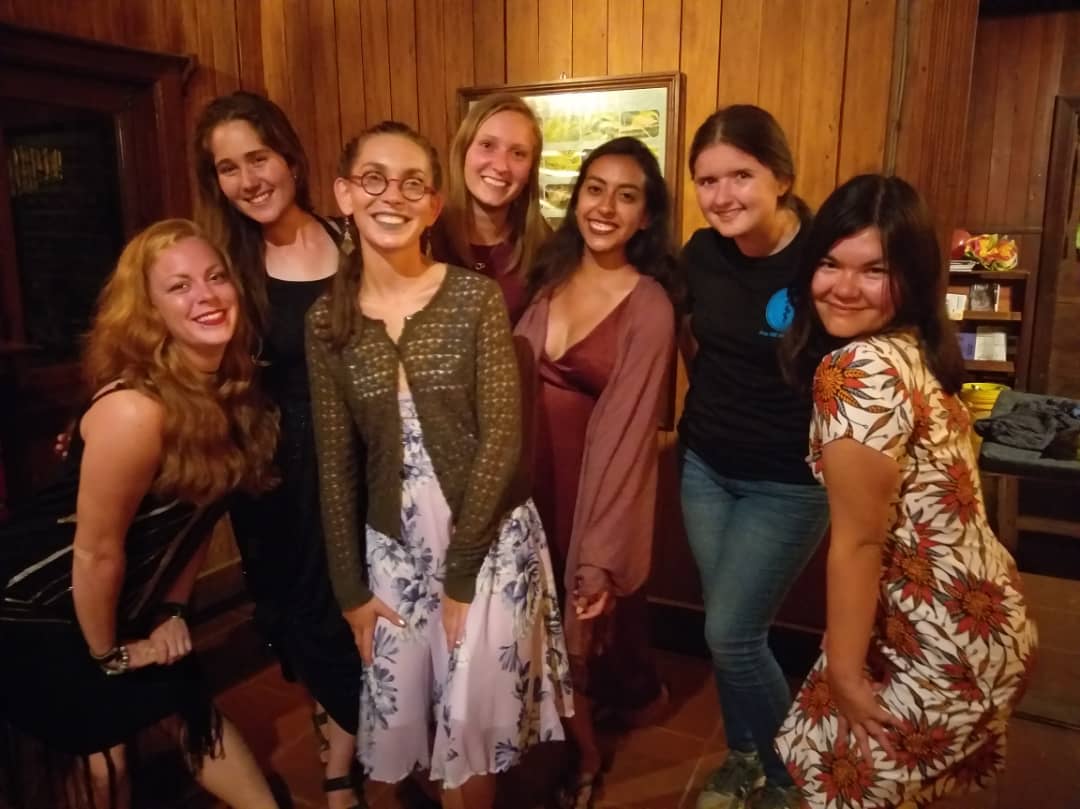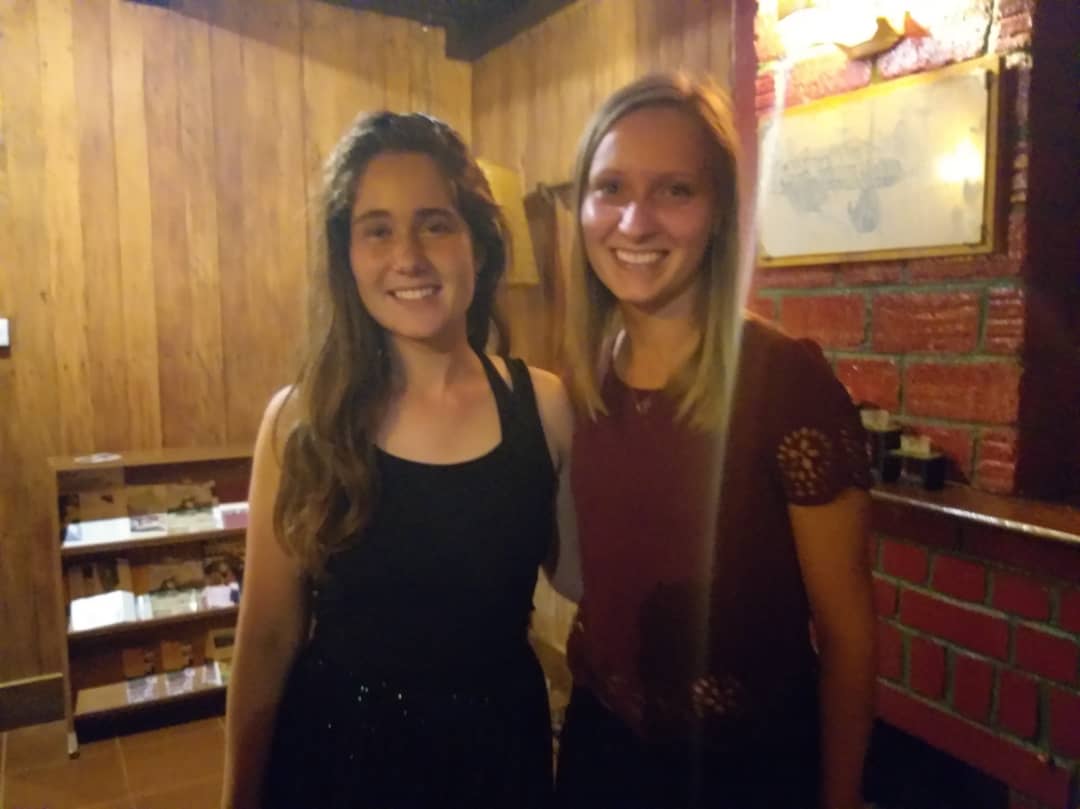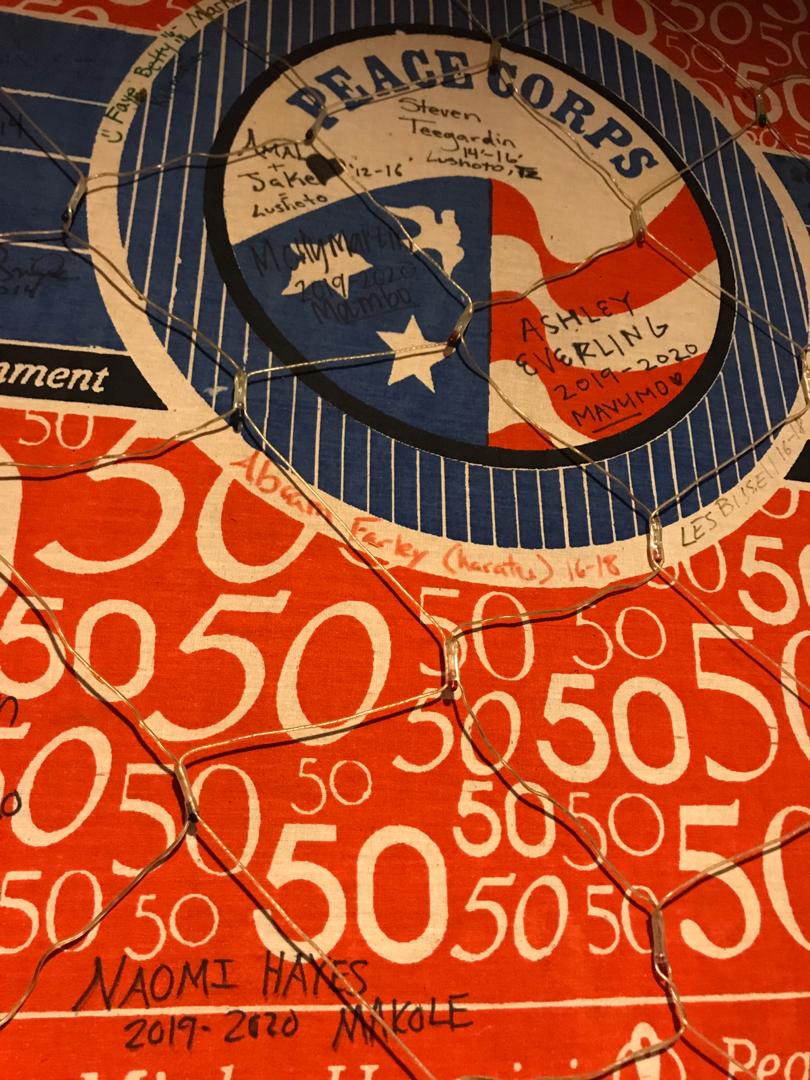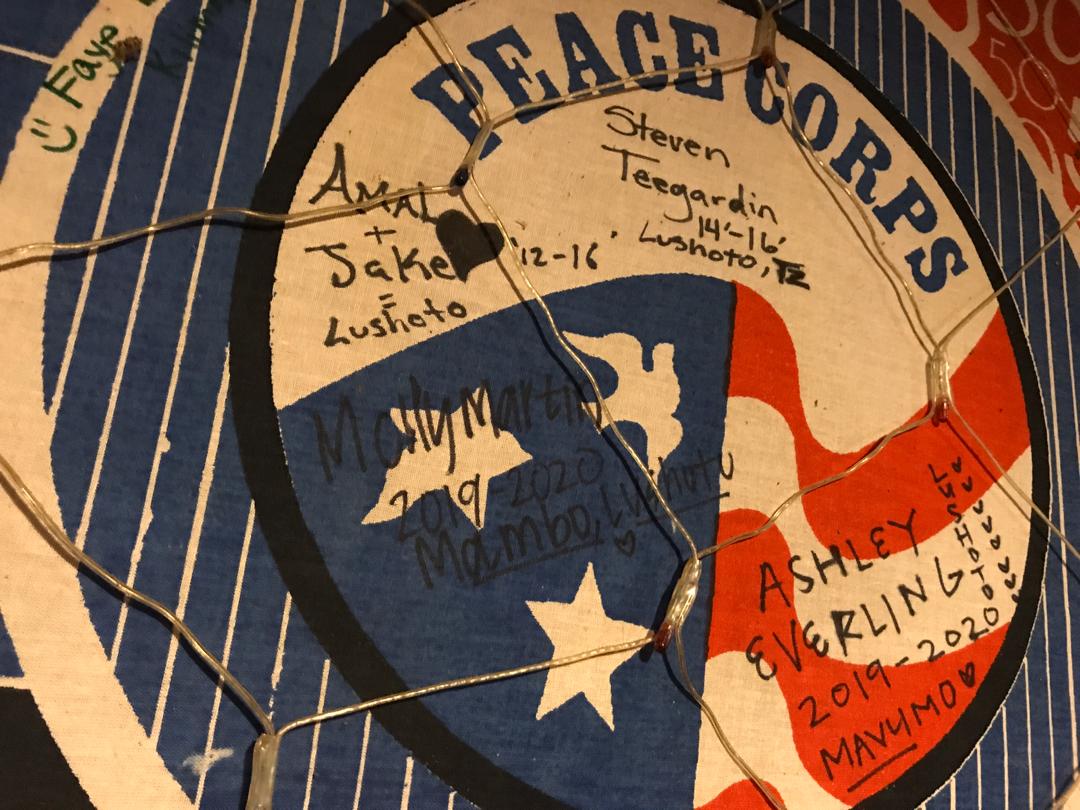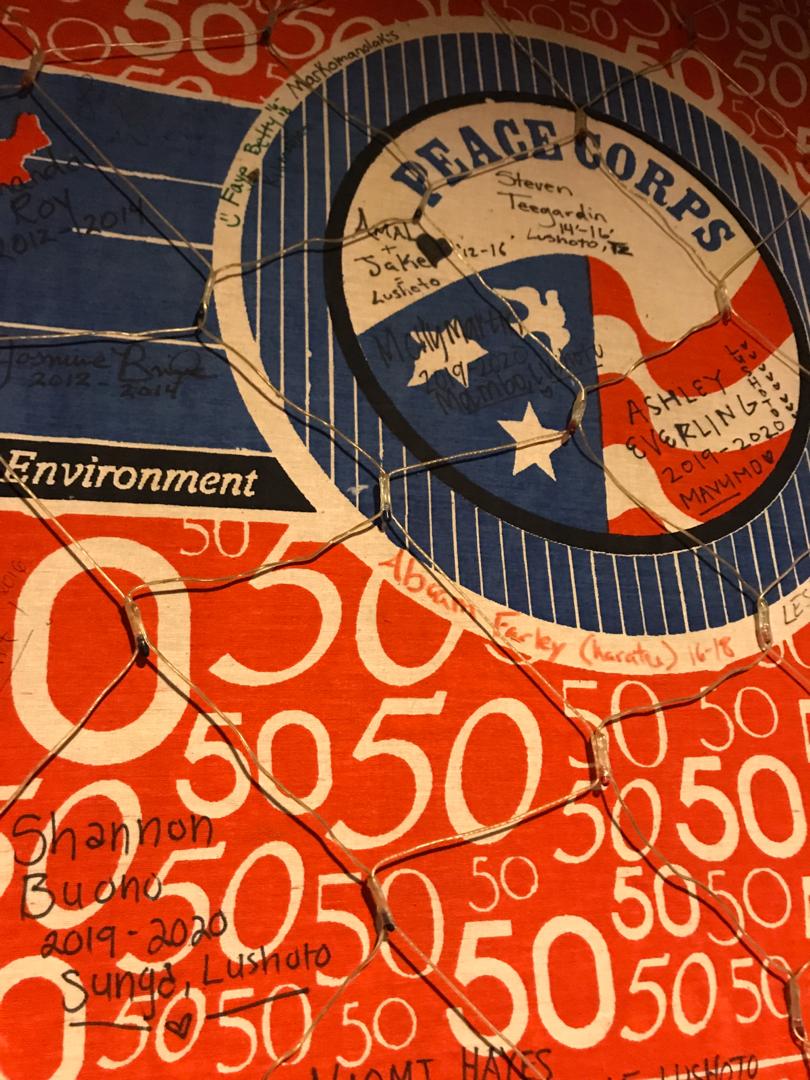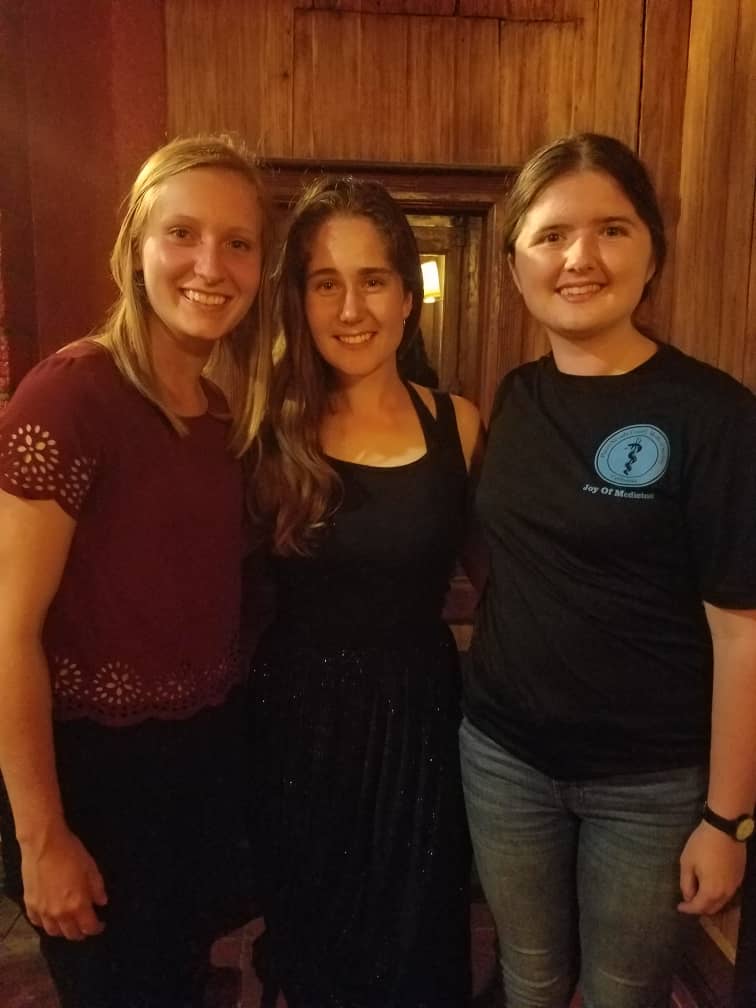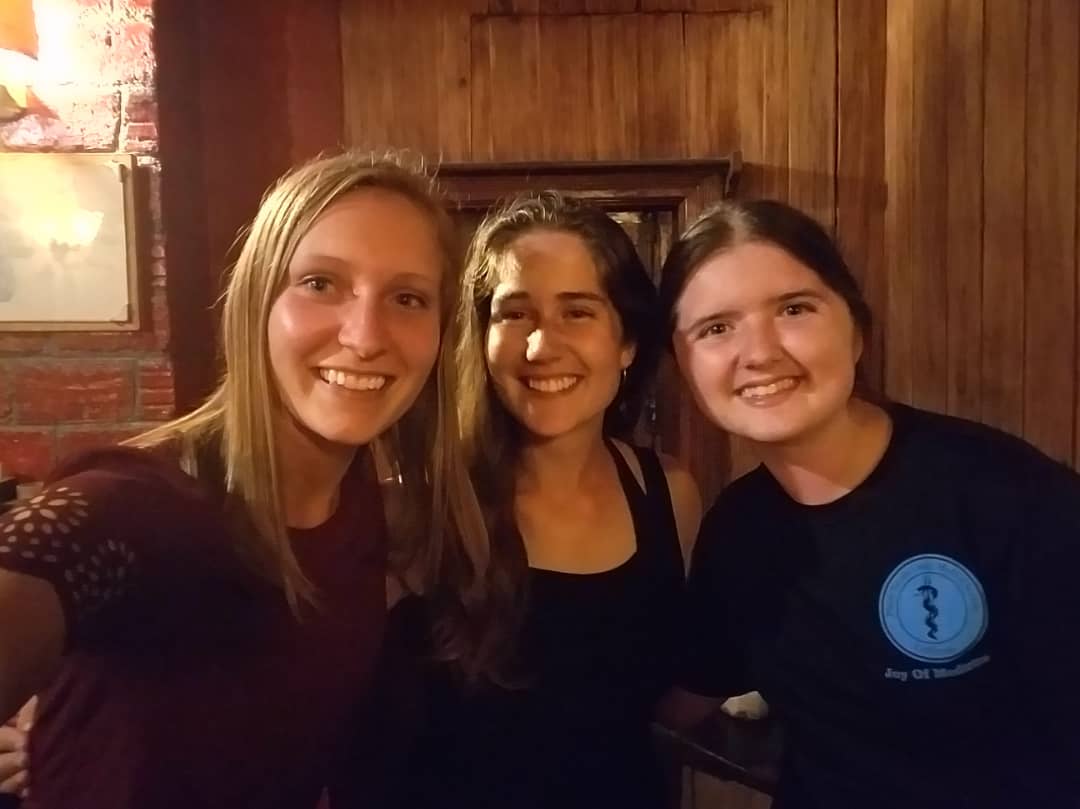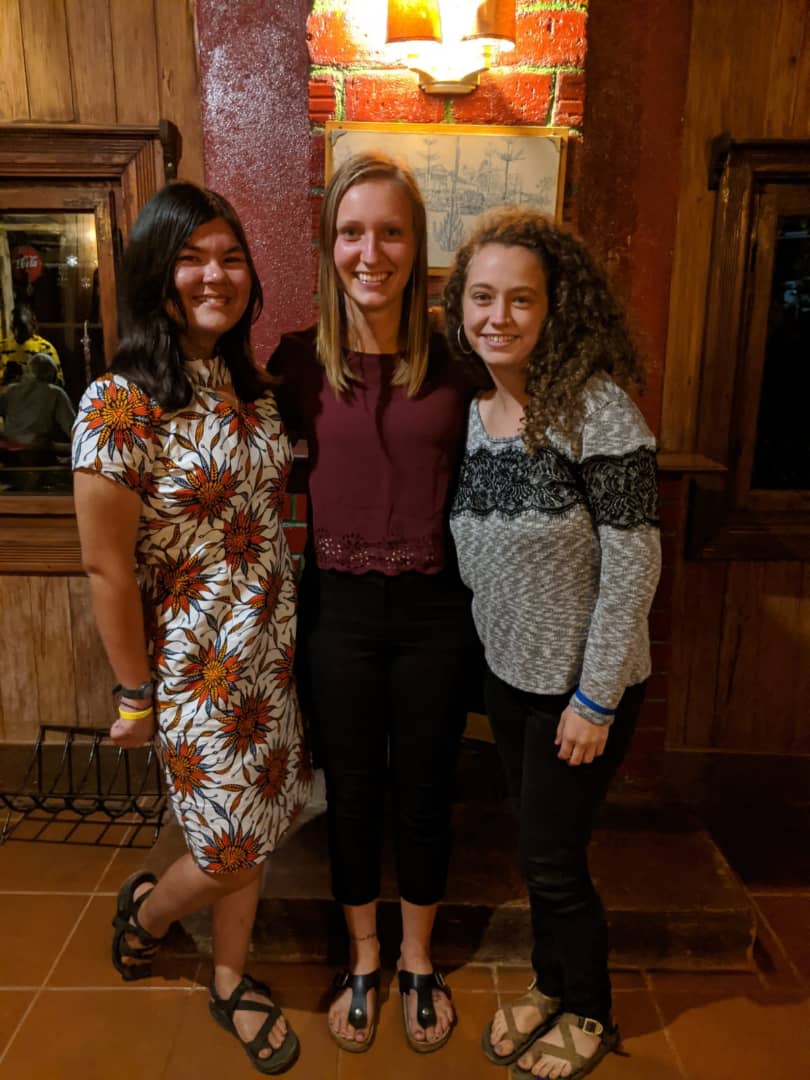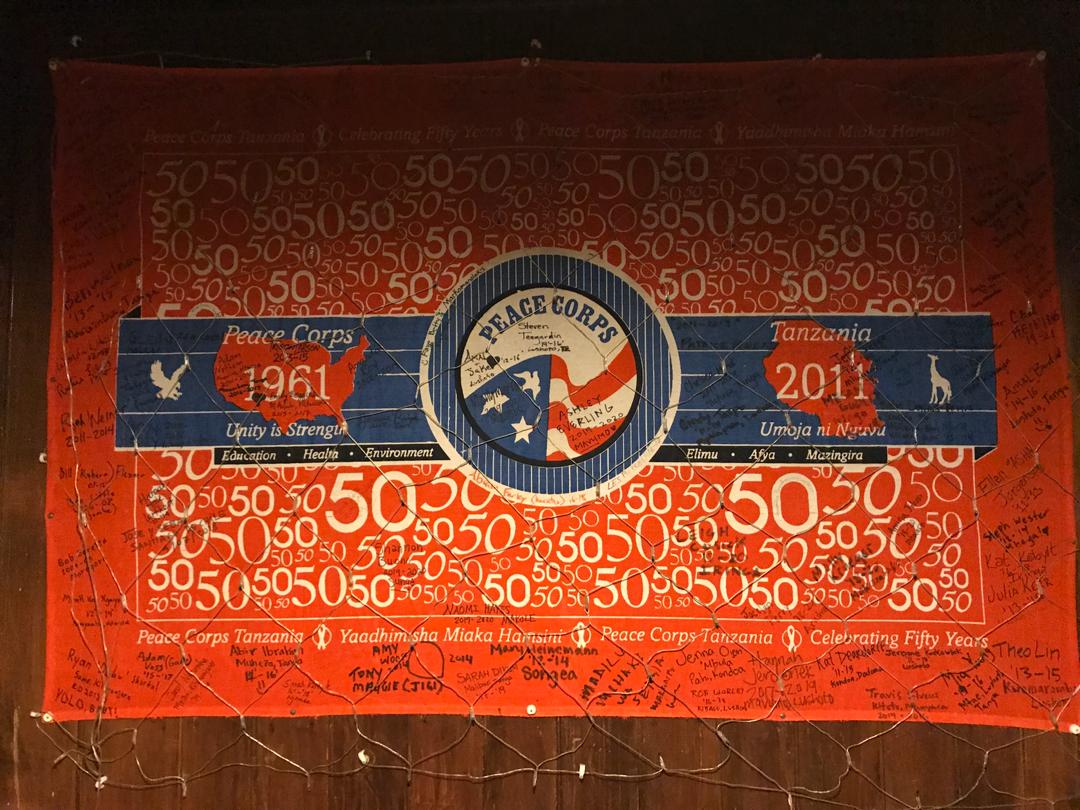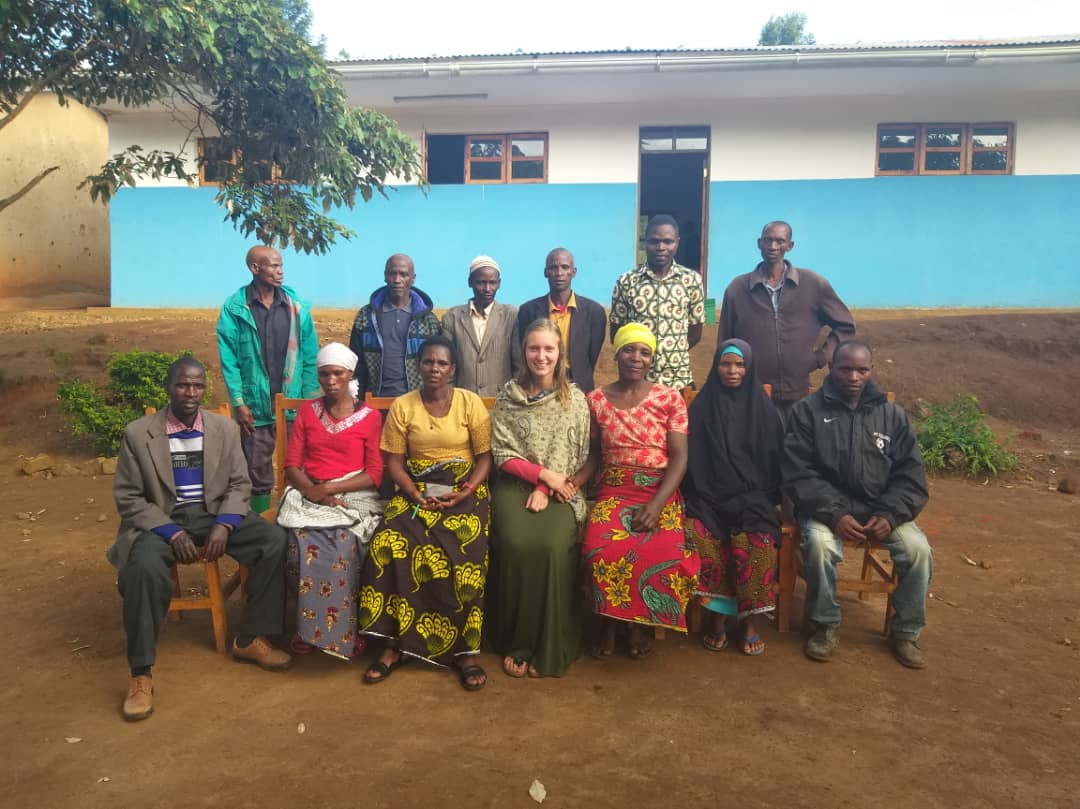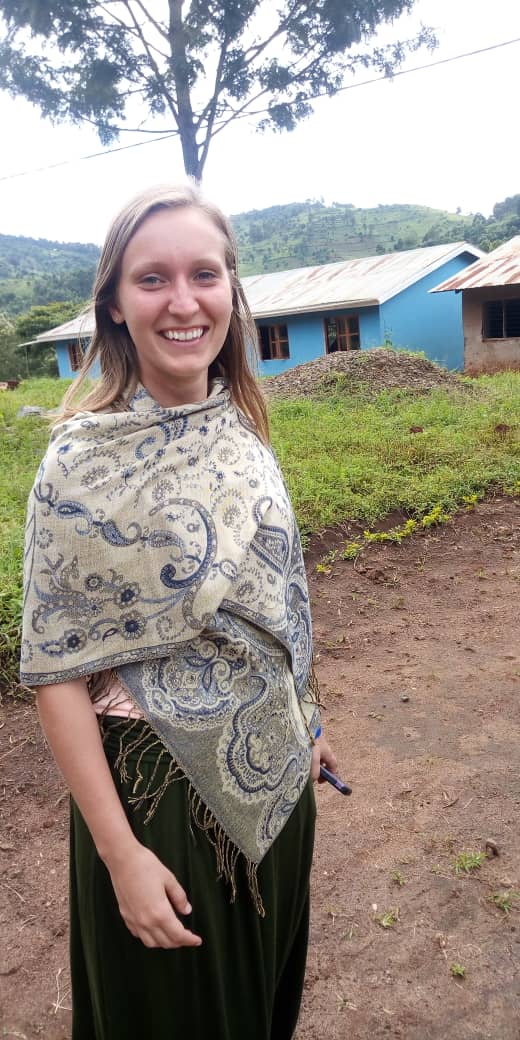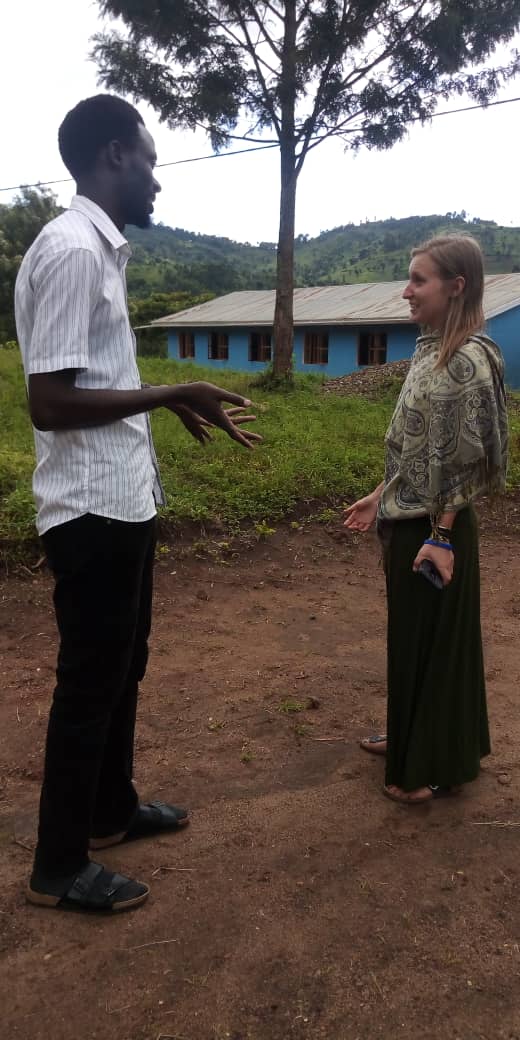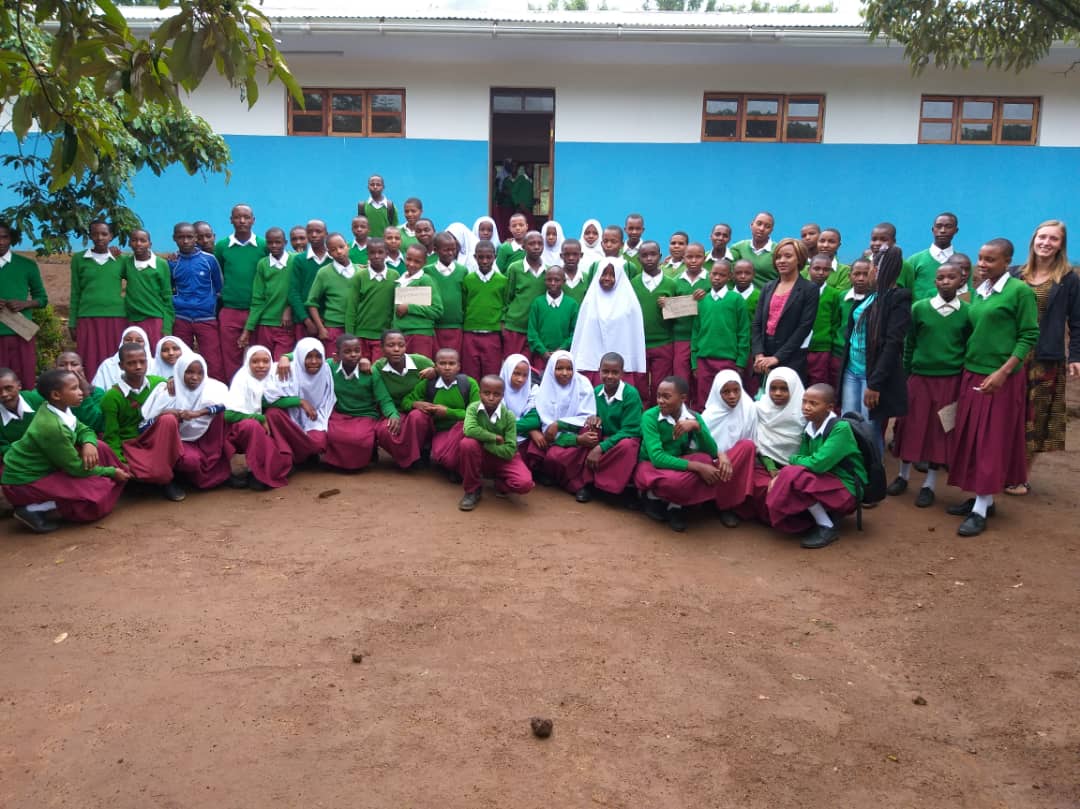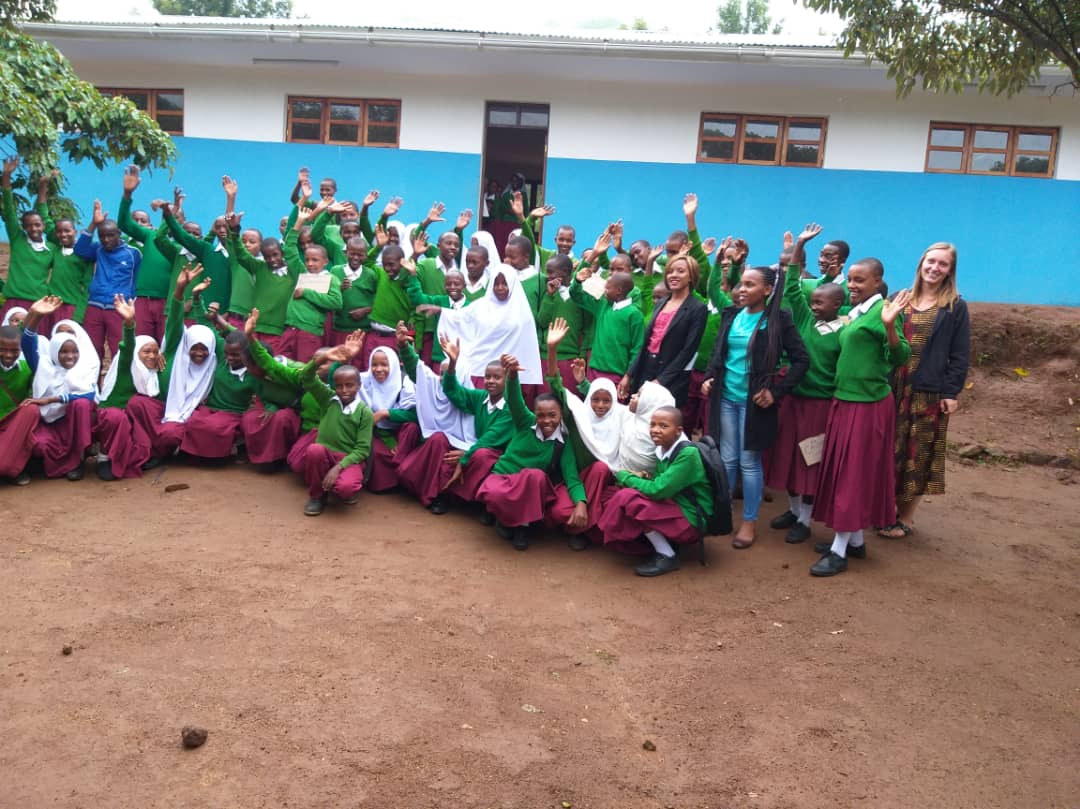Where do I begin? This post is going to have a lot of big news packed in. It has been a busy month. First I would like to thank everyone who sent packages and cards for Christmas. I am so thankful to all of you for your love and support!
The school year kicked off on January 6th and this year I am teaching forms 1, 2, and 3 biology (freshman, sophomores, and juniors). There are two streams of forms 1 and 2 and one stream of form 3. Form 2 is a huge class so there are between 60 and 70 students in each stream. Form 1 is also big and has around 50 students in each stream and my form 3 class has 45 students. So as you can imagine classroom management with a group of 50 teenagers can be interesting at times but I am thankful that I haven’t had any major problems yet. My students are all very respectful of me and don’t disrupt the class. Outside of teaching Daniel and I are still running FEMA club which has increased to over 130 members! I have also started the process of completing a grant which I mentioned in a past post. Daniel and I sat down with the head of school and we figured out that we wanted to do a water catchment project where we would build a large cement water tank to collect rain water during the rainy season. To start the grant writing process we needed to write a concept memo with basic information about the proposed project and a cost estimate. We got that approved right away and now are going to get started on the actual grant. It has been put on hold for now due to a reason I will go into shortly but I hope we will get going on it soon. The grant process is very long and intense so I hope we will be able to make a small committee to work through it together.
Now, the reason the grant writing has been on hold is because I (with the help of Danny) am working with some students on applying for a conference. The conference is called Yale Young African Scholars (YYAS) and it is through Yale University in the US. It is a week-long conference for East African students to learn about applying for universities, financial aid, SATs and basically gives them help with their future after graduation. So, we presented the opportunity to 11 high-achieving form 4 students with good English (requirements for the application) and of course they were all interested. When I first mentioned it to Daniel and presented it to the students I didn’t realize just how big of an undertaking it would be to help that many students through the application process. The application is all online which was the first challenge. Most of my students have never used a computer in their life. Some don’t even have electricity in their home and students are not allowed to have phones in Tanzania. So I printed pdf sample application for each student so that they could work on filling out the application and then I would enter it (which means I am the one typing 4 essays for each of the 11 students and entering all their additional information). However, when I printed it it was 24 pages. That would be a long application for people in the US and then add on the many challenges students face here. For example, one of the first things it asks for, a permanent address and a mailing address. Well, in rural Tanzania there is no such thing as road names or house numbers so nobody has an address. Another challenge with these applications all being online was that each student needed to have an account made with an email. So, in the past week I have created 12 new email accounts, 1 for each student and then one for the school (because the application wanted the schools email) and 11 new accounts in the application program. Another challenge arose with needing the students transcripts which are supposed to be printed on school letterhead. Well, my school does not have letterhead, the printer is broken, and grades are calculated each semester, handwritten onto their grade report sheet, signed by each subject teacher and then the head of school. The student is given one copy and the school keeps the other. But organization and filing isn’t really a thing in Tanzania so currently we are in the process of finding them. We have the grades from their second semester of Form 3 but we still need first semester as well as their grades from both semesters of Form 1 (Form 2 grades are their national exam NECTA grades which can be found online).
Those are the main challenges for the application and then comes the travel grant. The students can choose to attend the conference in one of three countries, Kenya, Ghana, or Zimbabwe. However, my students families cannot afford to send them there so we needed to fill out the travel grant which came with many more challenges. The travel grant wanted to know names, ages, level of education and monthly income for every person living in the household. It also wanted bank statements, employment records or other documentation of income. Now, the majority of my students come from farming families. Their parents are not employed, they practice small-scale agriculture and livestock keeping. They earn money by taking their produce to the local markets to sell so there are no bank statements because none of them have bank accounts, there are no employment records, and there are no other forms of documentation. This week Daniel called the parents and we all sat down in a meeting to try and gather the information. For families whose income varies based on the seasons, the climate and the market it was interesting trying to come up with a monthly average. We then needed a monthly average for how much they spend on food, utilities, and transportation. For a family that doesn’t have running water, electricity or heat what do you put for utilities? For a family that doesn’t have a car and walks everywhere the go unless there is an emergency or occasionally takes a pikipiki (motorcycle) longer distances how do you average their transportation expenses? Finally, after a 3 hour meeting with the parents we had come up with answers for everything we needed and Daniel and I decided that teachers at school could write letters stating who they were, how they knew the family and that they could vouch for the family’s financial status in place of bank statements or employment records. At the end the parents each took turns thanking me, stating (in rough translation from Daniel) that they were so thankful that I am here, that they are happy I am doing this for their children, that I am welcome at their home, at their church, in their community. They even wanted a picture with me when we were finished. That was one of the moments that made being here worth it. Just being accepted and included in the community here. Not even for doing anything crazy, I just presented an opportunity and am helping with the application. It made the crazy amount of work these applications are completely worth it. I just hope that my students get accepted so keep your fingers crossed and send out some prayers please! The application is due on February 12th so we’ve still got some materials to gather and things to do before submitting them in less than two weeks!!
Another exciting thing to share is that I was accepted to be on Peace Corps USAWA Committee! Within Peace Corps Tanzania there are a variety of committees that volunteers can apply to be on. For example there is the education committee, FEAST (a committee focused on promoting agriculture projects), Health committee, MRE (Monitoring, Reporting and Evaluation which helps volunteers with the VRF, volunteer report form), PSIDN (Peer Support Inclusion and Diversity, which is the volunteer support network), a few more that I don’t remember at the moment and lastly my committee, USAWA. USAWA stands for Unified Sexes Achieving a Wealth of Awareness. The goal of USAWA is to, “empower volunteers to bring gender-based projects to their site. We are here to support existing gender programs and to encourage innovation amongst volunteers to tackle the pervasive disempowerment of Tanzanian women and girls. We are here to foster volunteer and community-based male allies to promote female empowerment. We hope that by encouraging volunteers to put a gender lens over all projects, Peace Corps Tanzania can help to increase the agency of women in their own lives, their homes, and Tanzanian society as a whole.” This committee was of most interest to me due to my work with FEMA club at my school. I am so thankful to have my counterpart, Daniel, as a male ally in promoting women empowerment. During our club meetings we can yell “FEMA” and all the students respond with “Nguvu ya binti!” which stands for “the power of the daughter.” Some things USAWA does are:
- Planning and running the LEAD conference, a week-long conference that volunteers can apply for in which they bring their counterpart and four students to learn about leadership skills, student empowerment, HIV/AIDS and healthy relationships, gender equality, self-care, nutrition, entrepreneurship, study skills and future planning.
- PS. I am attending this conference with Daniel and 4 wonderful students at the end of February!!
- Women’s day and international women’s month competitions for volunteers
- Putting together a mamas group toolkit for volunteers who are putting together a mamas group at their site
- Helping with HURU, a conference volunteers can apply for to learn about teaching about menstruation and reproduction and then take that training back to their sites along with reusable menstrual pad kits for young females in their communities/schools.
Well, I see that this post is already getting long but I haven’t even shared some of the biggest news. We aren’t really supposed to be sharing this because nothing is official or for sure yet, but I wanted to share it here to my closest friends and family so you are aware of what is going on. There is a possibility that I will be home in the states at the end of June. Now this is not by choice but it may happen. The Tanzanian government is making some changes to the process of obtaining work visas and has not been cooperating with Peace Corps to get ours issued. The cohort above me, the Health/Agriculture cohort that arrived in Tanzania in February 2019 was recently sent home because they did not receive their work visas and their 1-year tourist visa expired a few days ago. We had a big going away party one weekend in Lushoto where all the volunteers in Lushoto District gathered to say our goodbyes. There is a chance that the same thing will happen to our cohort. Our 1-year tourist visas expire on June 21st and if we do not have our work visas by then we will be sent home as well. The staff in Peace Corps Tanzania has been working non-stop with the Tanzanian government to get our visas issued but it hasn’t happened yet. So now it is a waiting game. That being said, I have had some major ups and downs in the past few weeks processing the thought of going home and not completing my two years, and then having to figure out what to do next. Some days I feel like I need to be looking for grad schools, looking for other volunteer organizations, trying to find a job, basically anything so that I have a backup plan in the event I am sent home. But other days I realize that I need to focus my time and energy on carrying out my service here, no matter if that is for another 5 months, or another year and a half.
Because of the unknown in how long I will be in Tanzania, my parents have decided to change their plans of visiting me and now they are coming the end of March instead of September. As of today they will land in Tanzania in 57 days!! It’s crazy that it has been almost 7 months (208 days to be exact) since I last saw them and now they will be here in less than 2 months. So, along with my students’ applications, writing a grant, planning for and attending LEAD conference and teaching, I am also working on planning what to do for the 2 weeks they are here. Well, now that I have hit the 4-page mark on this post and have shared all of the big updates from the past month I think it is time for me to end this post. Enjoy the pictures from the going away party and the meeting with my students parents.
